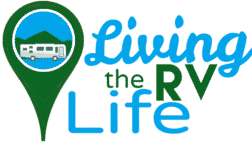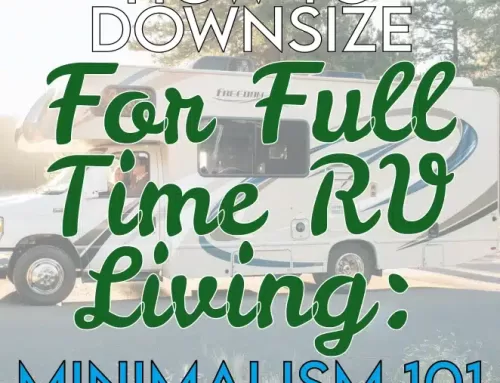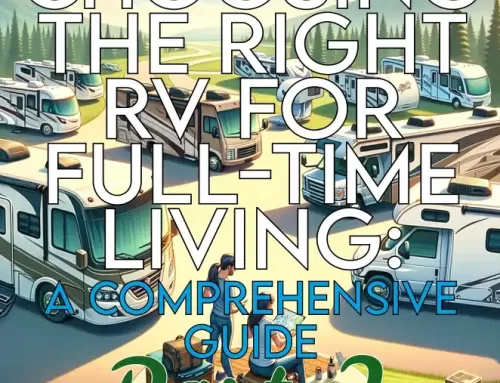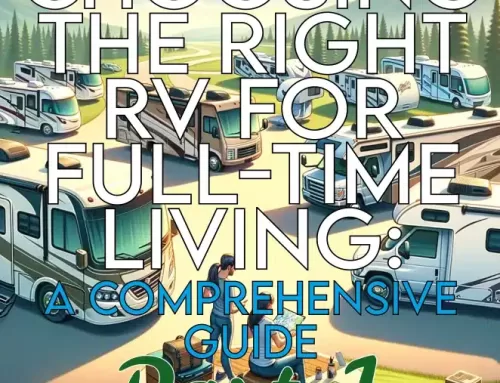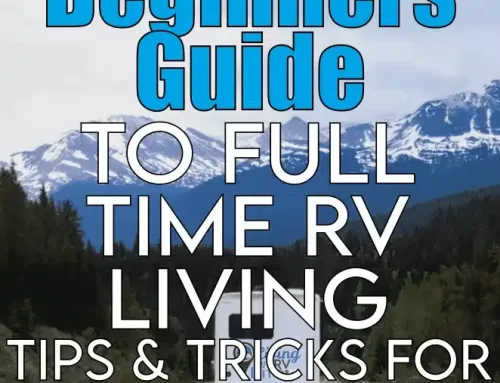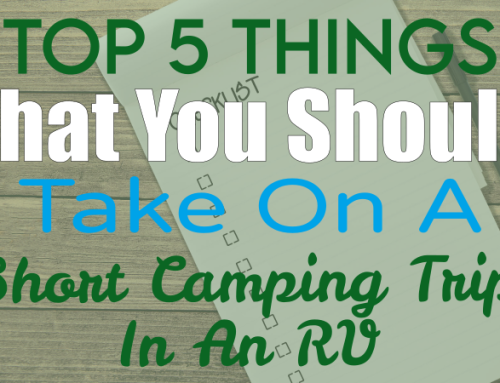 A few nights ago, we were sitting outside when the stench of a cigar floated through our site. It was such a strong smell that it forced us into our RV on one of the hottest days of the year.
A few nights ago, we were sitting outside when the stench of a cigar floated through our site. It was such a strong smell that it forced us into our RV on one of the hottest days of the year.
A few days prior we got chased in by the smell of sewer coming from the RV spot right behind ours. We found out that they did not know how to attach their sewer hose (because they were new to RVing) and some leaked out all over the ground. They were trying to hose it down when park staff came over to take care of it properly. If you don’t already know, that smell lingers for hours afterwards.
There have also been mornings when we have been woken up before dawn because someone started their very loud pickup, or cranked their car stereo, or because of kids screaming and no parents trying to keep them quiet.
A few years ago, we pulled into our reserved spot, expecting a calm, quiet few days of camping only to find ourselves in the middle of 2 RVers having an all-out feud over something that had occurred days earlier. They were literally screaming at each other over our RV, while we were stuck in the middle.
Over the years we have had many experiences like this and heard many stories from others similar to these.
In many of these cases (but not all) the RVers were relatively new to RVing in general. So, we try to go easy on them and not get too upset when someone does not know what to do. After all, we have all been there at some point – out camping and not knowing what to do. That is why we decided to put this list together. A list of things every RVer learns over time, to make not only your camping trip memorable, but to ensure that others around you also enjoy their time in their RV.
RV Etiquette
Etiquette is defined as “the customary code of polite behavior in society or among members of a particular profession or group.”
Keeping that in mind, here are the top 15 rules for RVers to follow:
1) Always know and follow park rules.
It does not matter where you are – whether it’s a fully serviced RV park, or some off-the-beaten-path government campsite that has no services, there are clearly defined rules. You MUST Follow them. They are not suggestions. If “quiet time” is defined from 10AM to 7AM, then you must be quiet between those hours. Ignoring this rule could get you kicked out of your spot.
2) Observe Check-in and Check-out times.
As part of the rules, check-in and check-out times are usually defined. Do not expect to be able to check-in early or check-out late unless you have pre-arranged with the RV park. Many times, someone is waiting to move into the spot you are in. If you arbitrarily decide you are going to check out late, you could impact someone else’s enjoyment of the spot.
3) Watch your parking.
Most RV parks have suggestions on how to park, but if not, look at how others are parked around you. Usually that means park to one side (usually the side where the power/water/sewer hookups are. Also be sure to contain your vehicles to your own spot. In other words, do not park your tow vehicle so that it hinders the ability of your neighbours to come and go freely.
4) Control Your Spread
Some RVers like to “Spread out” in their spot. BBQs, fire pits, bikes, kids toys, pets. All are fine to bring with you, but be sure to contain them to your RV spot. It’s fine to use your RV spot the way you see fit (for the most part) just be considerate of those around you. Try and keep your stuff neat and tidy.
5) Control you kids.
Some people think the campground doubles as babysitter to their kids. They let them run around, ride bikes and generally have fun. While we encourage your kids to take advantage of what the campground can offer them, parents are still responsible for their kids. If they are out of control, control them.
6) Look after your pets.
More and more RV parks and campgrounds are denying people with pets. This is because so many people do not look after pets. They leave them alone in the RV all day, many times it is dogs that do nothing but bark all day. Some people do not clean up after their pets either. The rules for your pets are the same when you are home. Clean up after them and do not let them run wild either.
7) Do not cut across someone else’s spot.
RV spots should be considered private property. That means, do not cut through their spot if it is between you and where you want to be. Walk around. Also, ensure your kids and guests know that as well.
8) Do not block roadways, driveways, doorways, or public spaces.
Related to #3, if you tow a travel trailer, or have a tow vehicle, ensure it fits in your spot with your RV. If not, you might need to make arrangements with the campground to park your vehicle in another area. No matter what, do not park in such a way that you could hinder emergency vehicles from accessing the RV park or campground.
9) Cleanliness is important.
Ensuring you keep your RV spot clean and tidy is important. No one wants to have to sit beside or behind or across from a camper that has trash or other unsightly items sitting on their spot.
10) Be courteous when smoking or vaping.
There is nothing worse than being woken up late at night or early in the morning because your neighbour decided to light his stogie first thing. The same holds for flavored vapes, or smoking cannabis or cigarettes. Be considerate of your neighbors. Consider going for a walk when you smoke, or go find a secluded area to smoke in. You may also find some campgrounds have dedicated smoking areas and prohibit smoking on your RV spot.
11) Pack out what you pack in.
You have probably heard this saying, but if not, in terms of RVing it means be sure to leave your camp site cleaner than when you arrived. Whether in an RV park that has dedicated staff to clean, or a forestry campground that is not serviced, it is important to leave your camping spot clean. As if you had not been there in the first place.
12) Run generators only when allowed.
In some RV parks there are not electrical services. But those parks usually allow you to use a generator at specific times of the day. Only use your generator at those times. Remember that your RV is designed to live in “off the grid” for extended periods of time. Your batteries should keep the lights on, while your stove, fridge and furnace all run on propane. You should be able to go at least a few days at a time before recharging your batteries. But if not, only run your generator during designated times to “top up” the batteries.
13) Do not leave food (or alcohol) outside.
Many campgrounds interface with the forest. There are many animals in the forest, and some can smell food from miles away. Reduce the risk of something getting your food by not leaving it outside. Further, crime may be an issue. We have been to campgrounds where full coolers of beer and other drinks have been stolen. When in doubt, just put coolers in your truck or RV until you need them.
14) Control your campfire.
If you are staying in a campground that allows fires, be sure to burn a good fire. One that does not smoke. That means you must ensure that you burn only clean dry wood. Green or unseasoned wood, driftwood and bark all smoke and should not be used. MOST IMPORTANT is to make sure your fire is completely out. It should not be smoldering and should be cold to the touch. If you cannot touch the ashes (IE they are too warm) then add more water. Too many homes and businesses, not to mention countless millions of hectares of forests, have been lost to campfires that were not fully extinguished.
15) General rules for vehicles:
Often times campers do all the right things, but then they start their vehicles early in the morning or let them run creating exhaust which drifts through the campground. Also be sure to obey the speed limit. It is that slow for a reason. Kids playing do not always pay attention to roadways, or pets could get off their leashes and go for a run.
If it is not clear by now, these simple straight forward rules are meant to help you and those around you enjoy their camping experience. All it takes is a little common sense to ensure there is no tension between you, your neighbours or the RV park or campground you are staying in.
By starting your camping trip planning on being a good neighbour you set an example for those around you. People notice when you keep quiet, ensure your spot is tidy and you park correctly. Best of all, all these things are easy to do and do not require any extra effort on your part.
What do you think? Have we covered them all? Did we miss something? If so please let us know.
